MTU Cork SU Presents


MTU Cork SU Presents


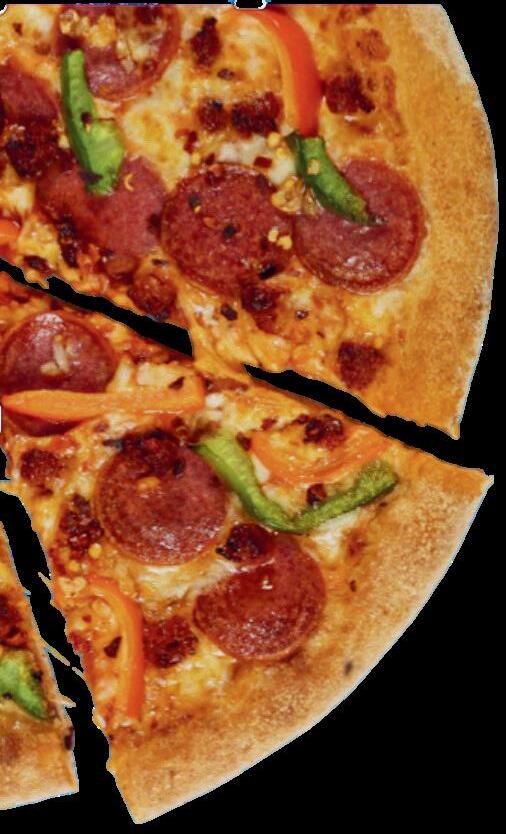
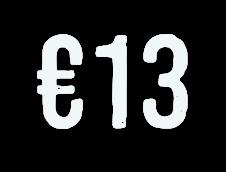


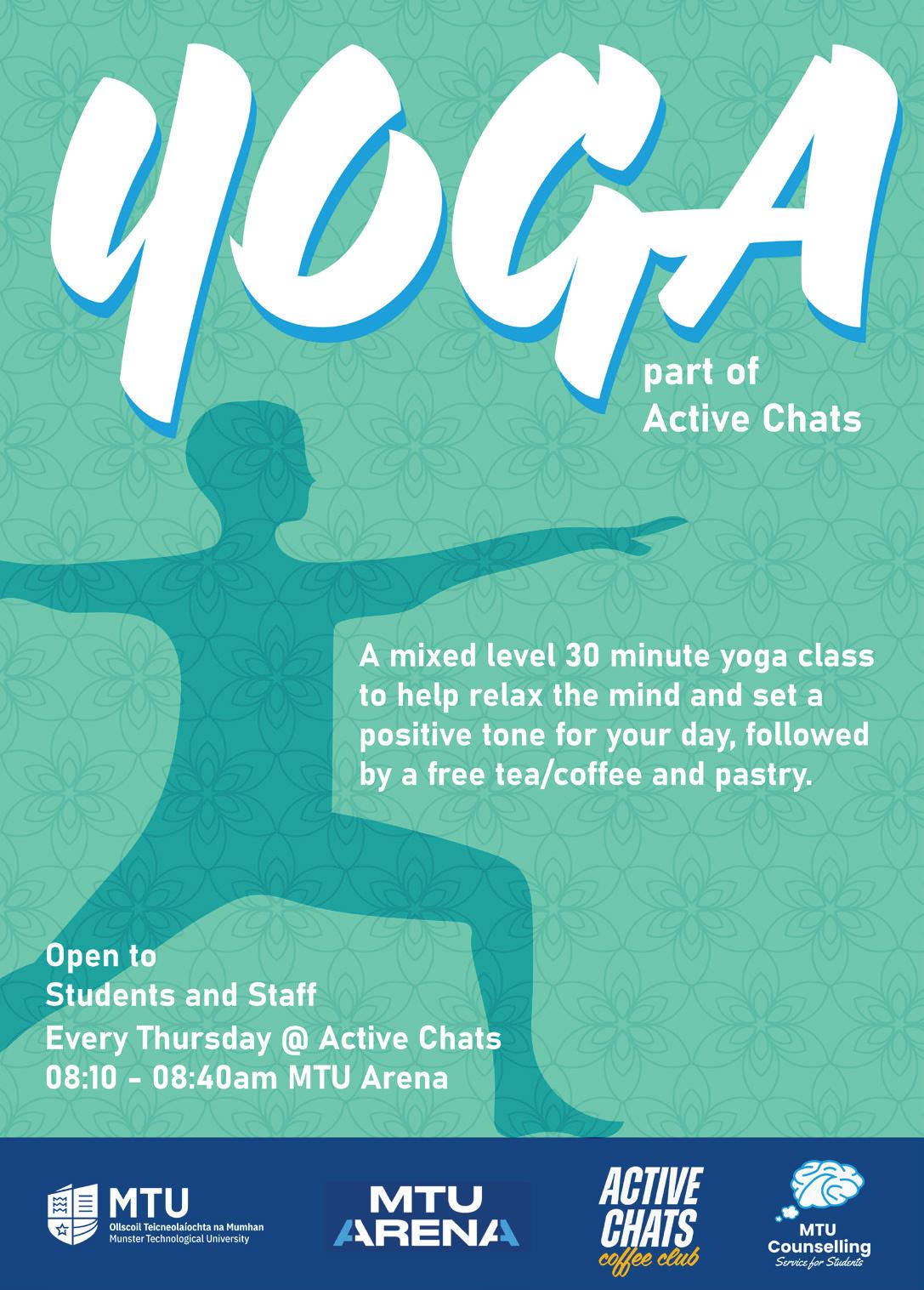
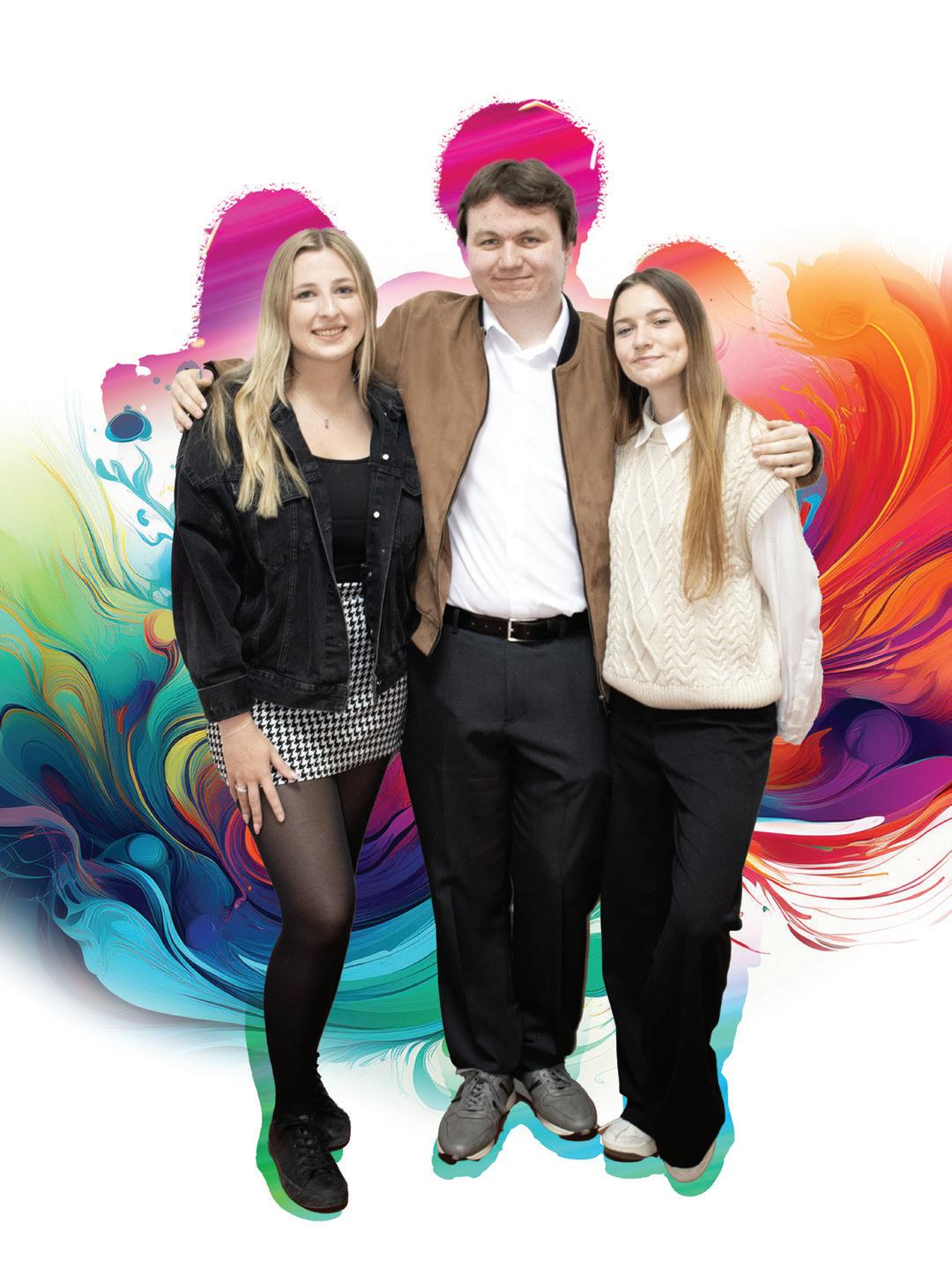

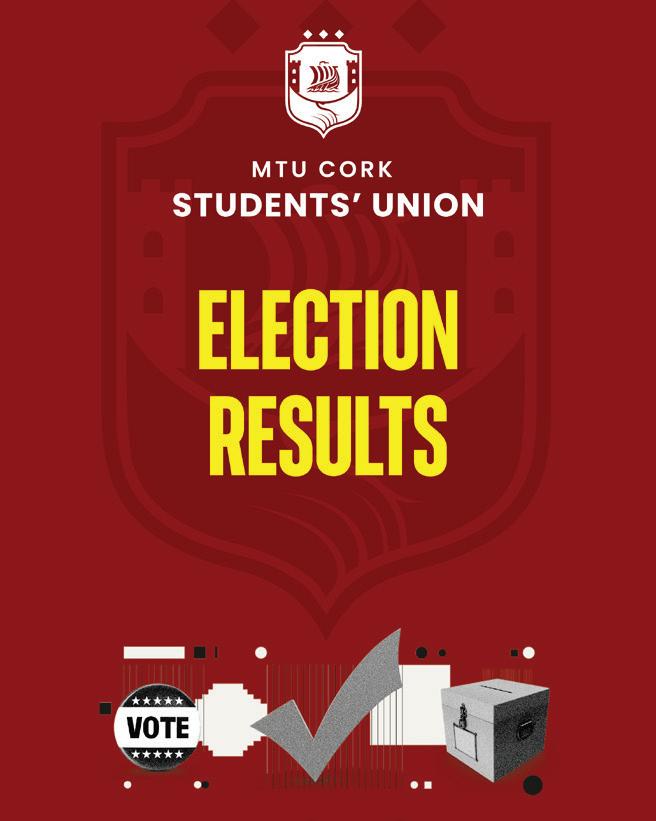
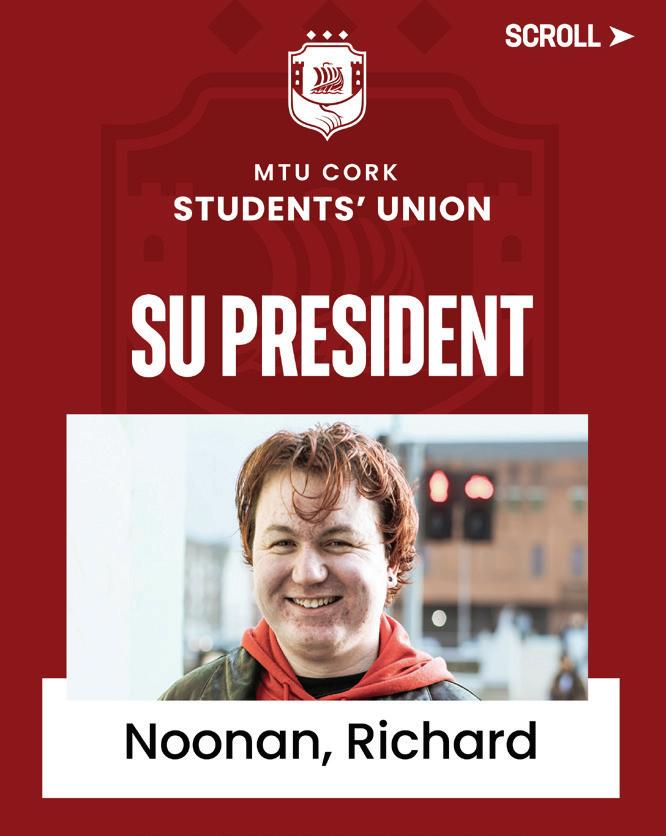
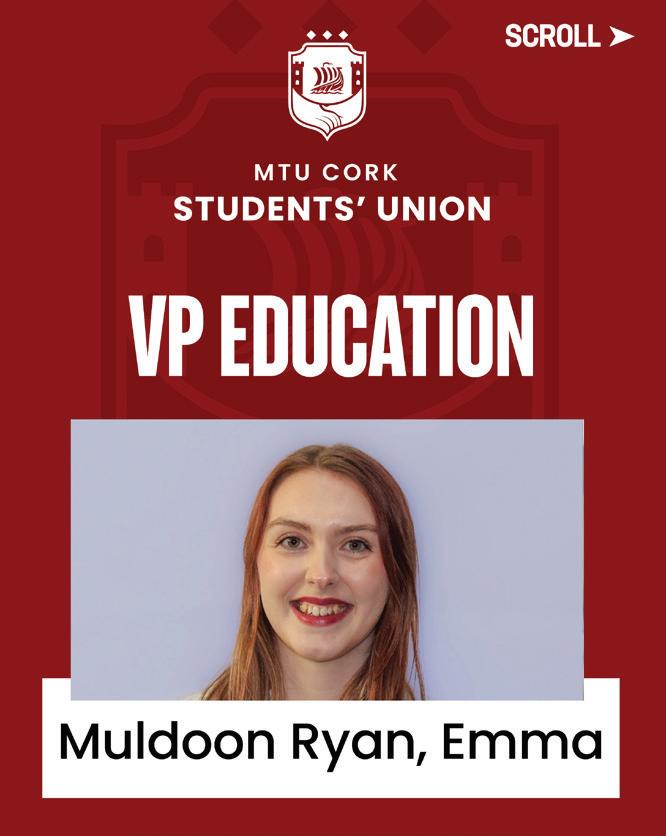
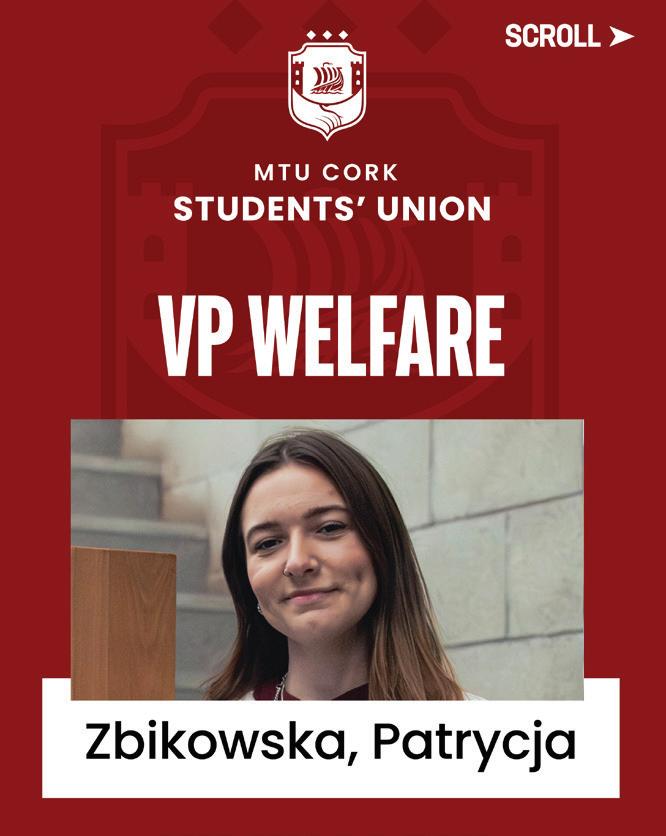
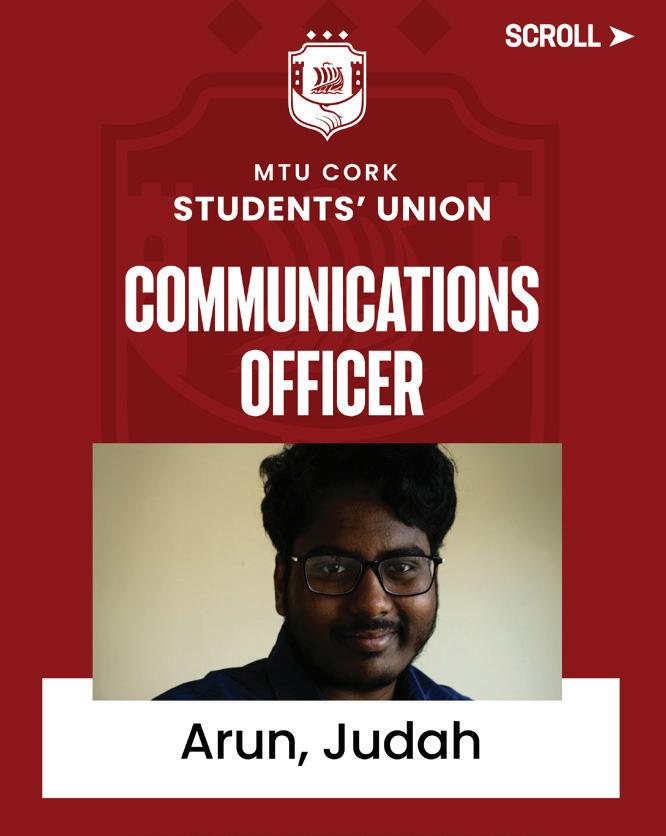
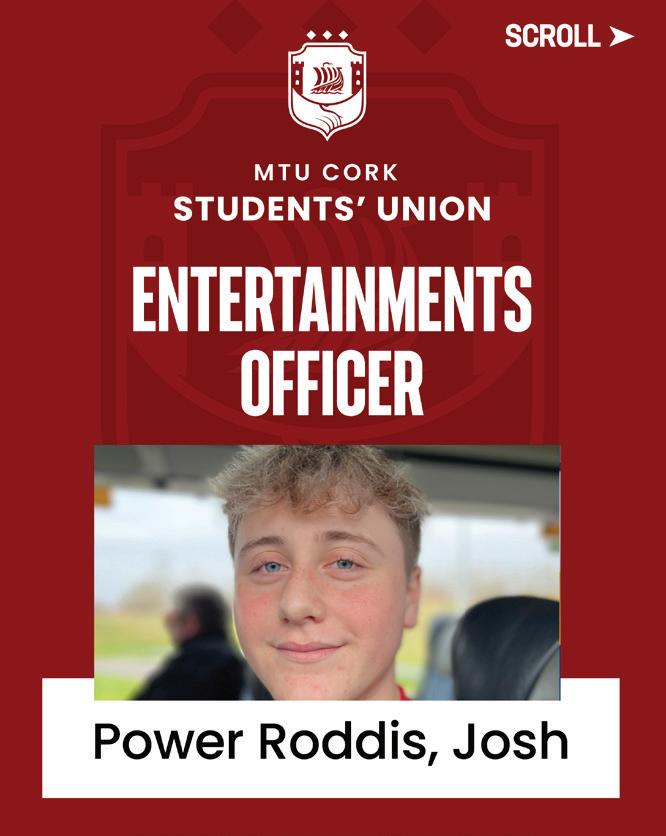
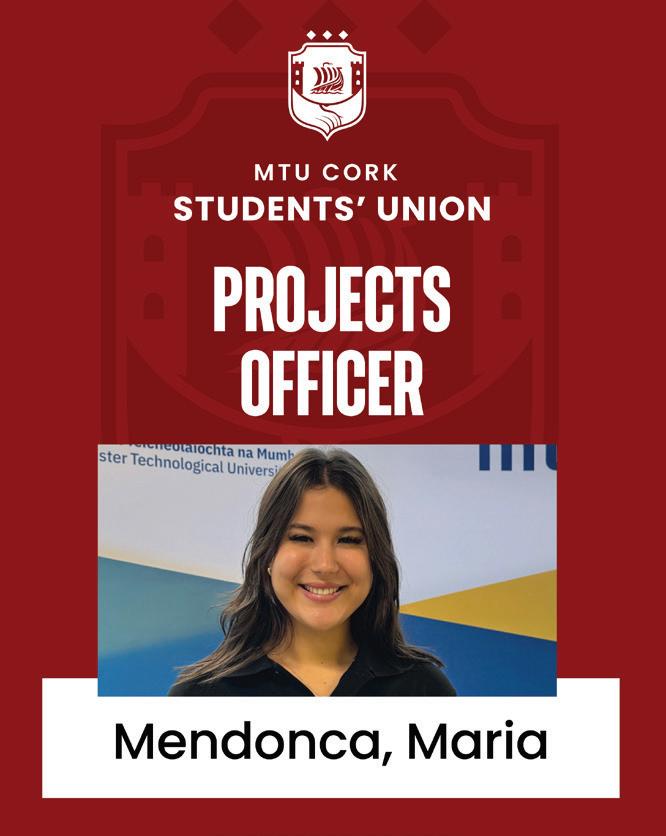

Marymount 1 - Orlaith Leo (Physiotherapist Marymount), AnnMarie Barret (MTU mentor), James O Mullane (Biomedical Engineering Year 3), Mark O Connor (Mechanical Engineering Year 3).
Sow Precise 1 -
Emily Adriaansen (Business Year 1), Michael Lanigan (Mechanical Engineering Year 3) Natalia Velasquez (Creative Digital Media Year 3)
Kieran Clancy (Mechanical Engineering Year 4) Ena O Driscoll (Mechanical Engineering Year 3)
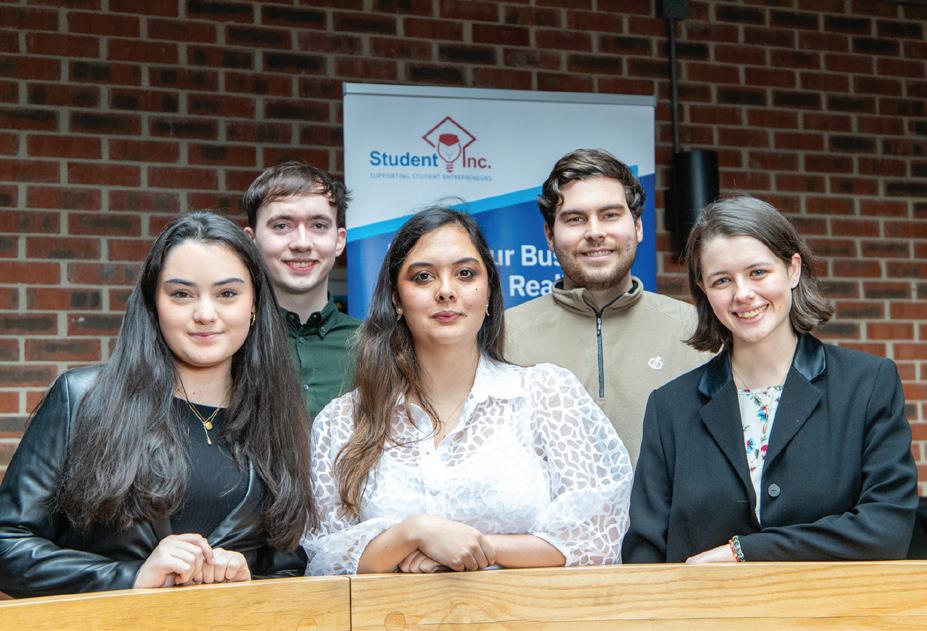
The Innovation Challenge Showcase took place on Wednesday 12 March in a jam-packed Council Room on the Bishopstown Campus, with many more logging in remotely to see 11 groups of talented students present the fruits of their labour, having took part in the Innovation Challenge over the previous 8 weeks. MTU President Professor Maggie Cusack delivered the welcome address at the event noting that students who undertook extra-curricular activities such as the Innovation Challenge being in high demand by perspective employers. Dr Hugh O Donnell provided an overview of the challenge to attendees, noting the huge value of it.
Students worked in multidisciplinary teams with students from MTU Cork & Kerry campuses, as well as International Students, with two €1,000 prizes to be won & all students who participated receiving a digital badge.
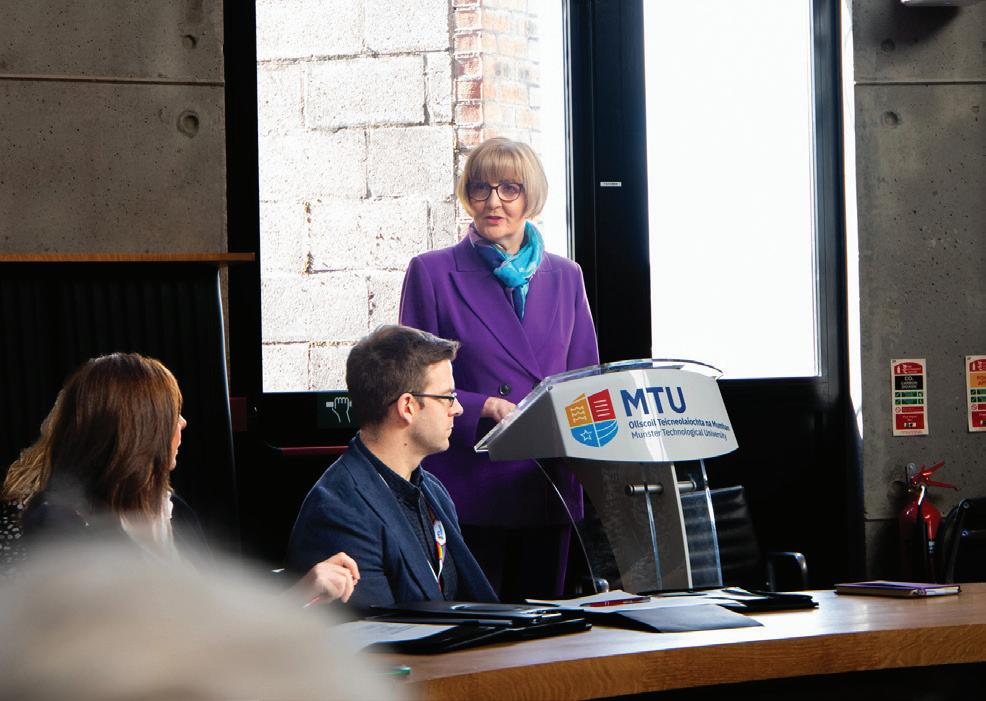
The judges had a momentous task on their hands when selecting the winners, due to the hard work and enthusiasm evidently conveyed through the students outstanding presentations and solutions displayed to the stakeholders.
The winning groups were Marymount 1 & Sow Precise 1.
The challenge for Sow Precise was to engineer a more efficient mobility tool for their sunrider system. The challenge for Marymount was to engineer an innovative neck collar for people living with Motor neurone disease that optimises function and quality of life.
Well done to the winning teams and to each of the students who took part.
The superb solutions presented by each student group were a true a testament to not only the effort the students put into them but essentially were a reflection of the fantastic engagement the stakeholders as the people at the heart of each organisation have had with each group throughout the challenge, as well as the invaluable expertise provided by the MTU mentors on a voluntary basis.
THANK YOU to all who took part we look forward to next year’s Innovation Challenge already.
MTU President Professor Maggie Cusack addressing the Innovation Challenge Showcase Attendees






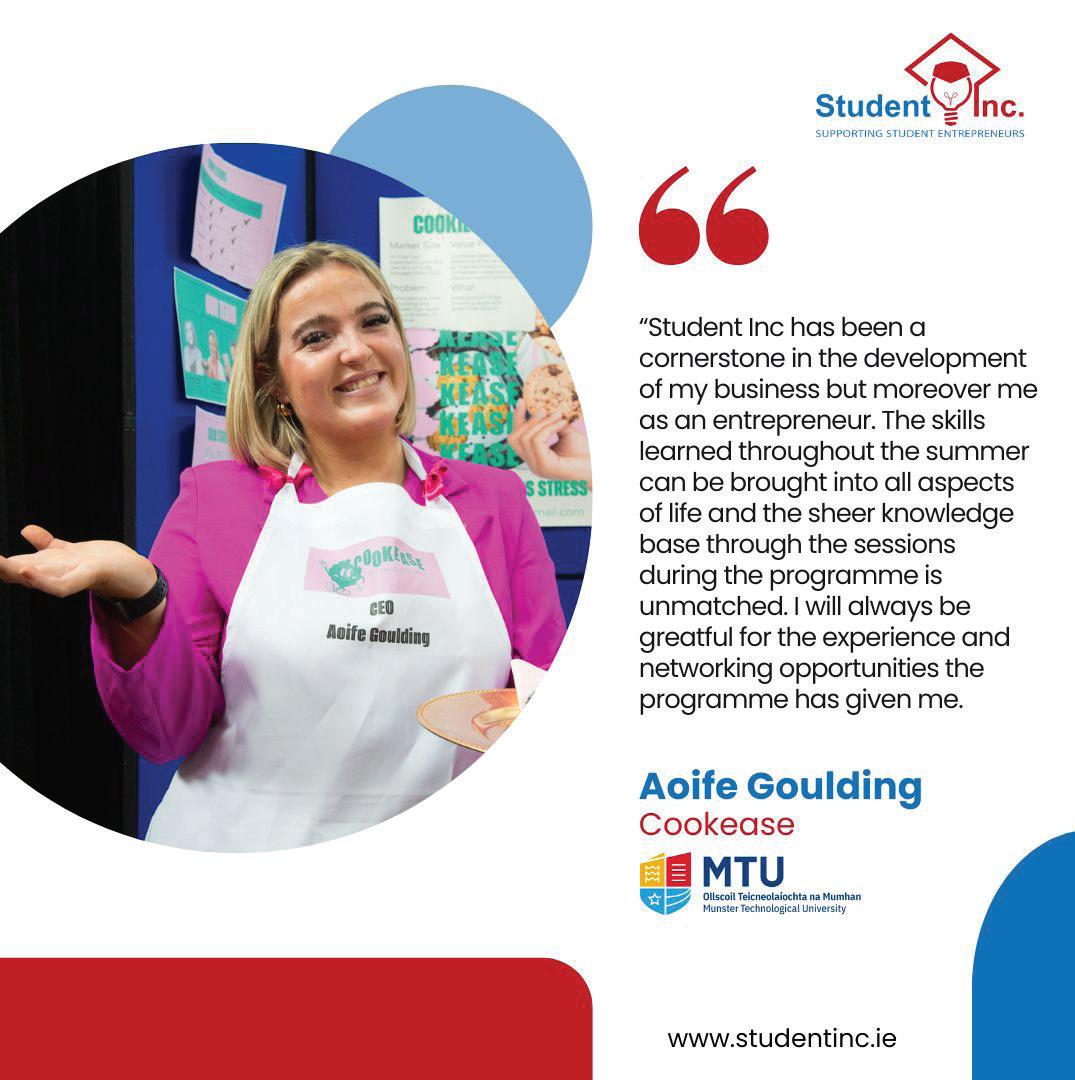
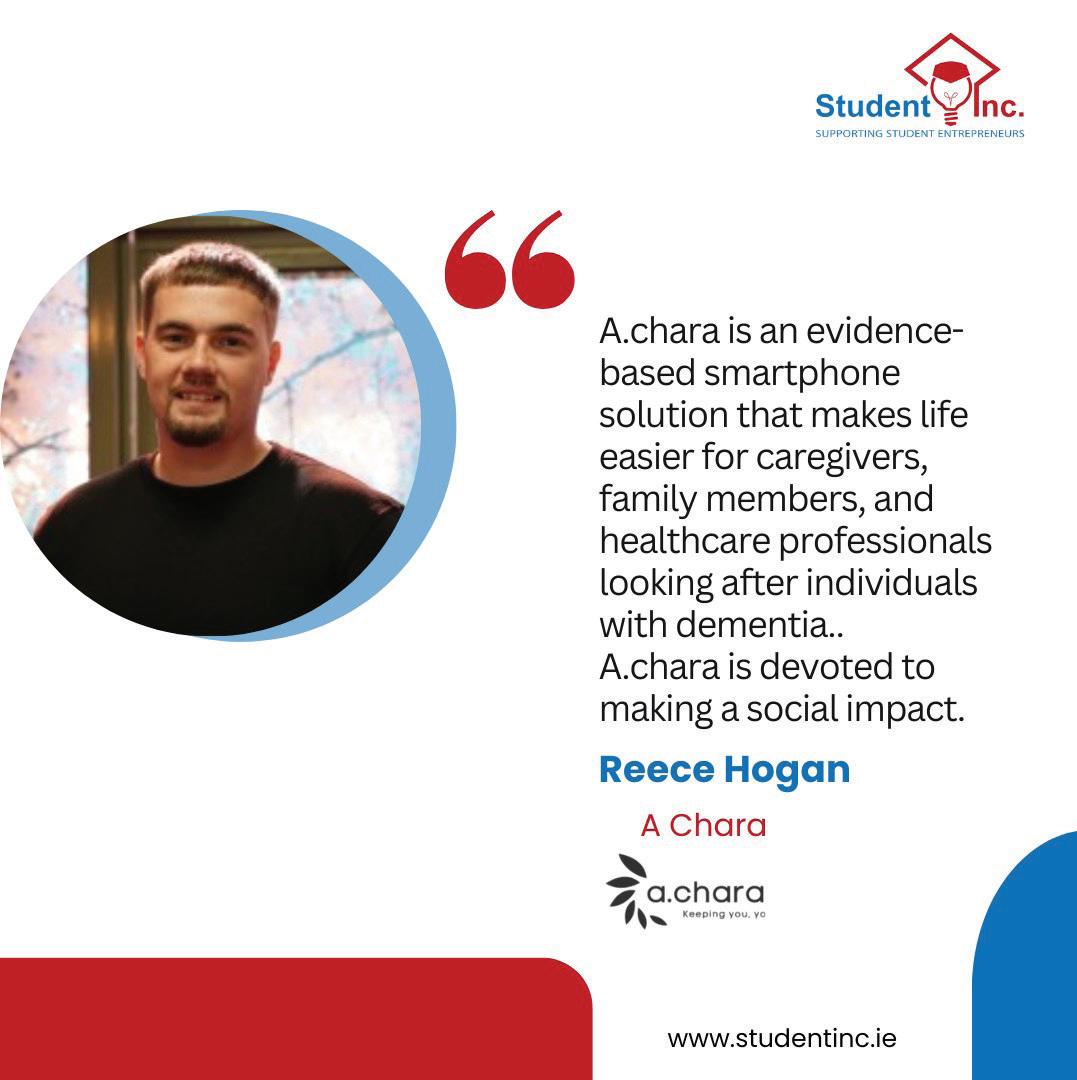
By Emma Russel-Ryan, Student Counsellor at MTU Cork.

You check your phone. Ten missed calls. Dozens of texts. Where are you? Who are you with? Why aren’t you answering?
At first, it felt like love—someone who cares, someone who needs you. But when their attention turns into constant tracking, jealousy, and control, is it really love?
In Ireland, coercive control has been a criminal offence since 2019 under the Domestic Violence Act 2018. But not everyone realises what it looks like in everyday life. It’s not just physical violence—sometimes, the most harmful abuse is psychological, emotional, or digital.
For many, college is where serious relationships start. It’s an exciting time—meeting new people, late-night chats, weekends away. But it’s also when unhealthy patterns can take hold. When control, manipulation, and digital surveillance creep in, the effects can be devastating—impacting mental health, friendships, and even academic performance.
So how do you tell the difference between love and control? More importantly, where can you get support?
Imagine this. You’re on a night out. Your phone buzzes.
“Where are you? Who’s there? Send me a pic so I know you’re telling the truth.”
You roll your eyes but send it anyway. It’s just easier than dealing with the fallout later.
Sound familiar?
At first, it seems harmless. They just care. But when checking in turns into tracking, and concern turns into
control, that’s a red flag. Being constantly monitored is not love—it’s surveillance.
Does your partner expect access to your phone, demand passwords, or insist on tracking your location? While sharing these details might seem normal in a close relationship, true love respects privacy and trust. If they pressure you to prove where you are or who you’re with, ask yourself—why?
Coercive control often extends into digital surveillance. Nowadays, sharing your location with friends and partners has become so common that many don’t question it. Apps like Snapchat, Google Maps, and Find My iPhone make it easy to always know where someone is. But just because location sharing is normal doesn’t mean it’s healthy—or that you should feel pressured to do it.
Would you be okay with your partner knowing where you are at all times? If your answer is no, then it’s okay to say no.
• Review your social media privacy settings. Is your partner monitoring your posts, your comments, or your messages? Set your accounts to private and limit who can see your activity.
• Be mindful of location tracking. If you feel pressured to share your location, turn off tracking features like ‘Find My iPhone’ or ‘Google Location Sharing.’
• Check for spyware or tracking apps. If you suspect your partner has installed software to monitor your device, reset it to factory settings and change all your passwords.
A caring partner will respect your privacy and independence. If someone demands to track your location or gets upset when you turn it off, that’s a red flag.
Realising a relationship isn’t healthy is hard. Leaving can feel even harder. Maybe you’re worried about how they’ll react, afraid of being alone, or wondering if you’re just overthinking things. But love should never make you feel anxious, guilty, or trapped. If someone is controlling you—whether through constant check-ins, digital surveillance, or emotional manipulation—that’s not love, and you don’t have to stay.
If you’re thinking about leaving, here’s how to do it safely:
1. Talk to Someone – You don’t have to do this alone. Reach out to a friend, a family member, or a support service like MTU Counselling or Women’s Aid. Even just saying it out loud can help you see things more clearly.
2. Have a Plan – If you live with them or depend on them financially, leaving suddenly can be tricky. Try to save some money, pack essentials in advance, and figure out a safe place to go. If you’re in danger, there are services that can help.
3. Protect Your Digital Safety – If they check your phone, monitor your social media, or track your location, take steps to secure your accounts. Change passwords, enable Two-Factor Authentication (2FA), and review login history on apps like Gmail and Instagram. If they’ve installed spyware, use a friend’s device to get support.
4. Keep Important Stuff Safe – If you share a place, make sure you have your essentials—passport, ID, bank details. Keep them somewhere safe, like with a friend or in a secure online folder.

5. Know Your Rights – Coercive control is illegal in Ireland. If you feel threatened or unsafe, you can contact the Gardaí. There are also legal protections available, like restraining or protection orders.
You might still love them. You might even miss them. That’s normal. But real love doesn’t feel like walking on eggshells, constantly explaining yourself, or being scared of what happens if you say no. You deserve a relationship where you feel safe, free, and valued. If you’re in a situation that makes you doubt that, trust yourself—you deserve better. And there’s help available to make sure you get it.
If you or someone you know is experiencing coercive control, help is available. Here are some resources:
MTU Counselling Service – Free, confidential support. www.mtu.ie/student-services/counselling/
Women’s Aid (Ireland) – 24/7 helpline: 1800 341 900
Men’s Aid Ireland – Helpline: 01 554 3811
Safe Ireland – National domestic violence support network.
National LGBT+ Helpline – Support for LGBTQ+ individuals experiencing relationship abuse.
An Garda Síochána – Coercive control is a criminal offence in Ireland. If you feel unsafe, contact 999 or 112.
No relationship should leave you feeling trapped, anxious, or afraid. If you recognise coercive control in your own life or someone else’s, know that you don’t have to face it alone. Awareness, support, and digital safety can empower people to break free and reclaim their independence.
Healthy love is built on freedom, not fear. Let’s make sure everyone understands the difference—because real love should feel safe, not suffocating.
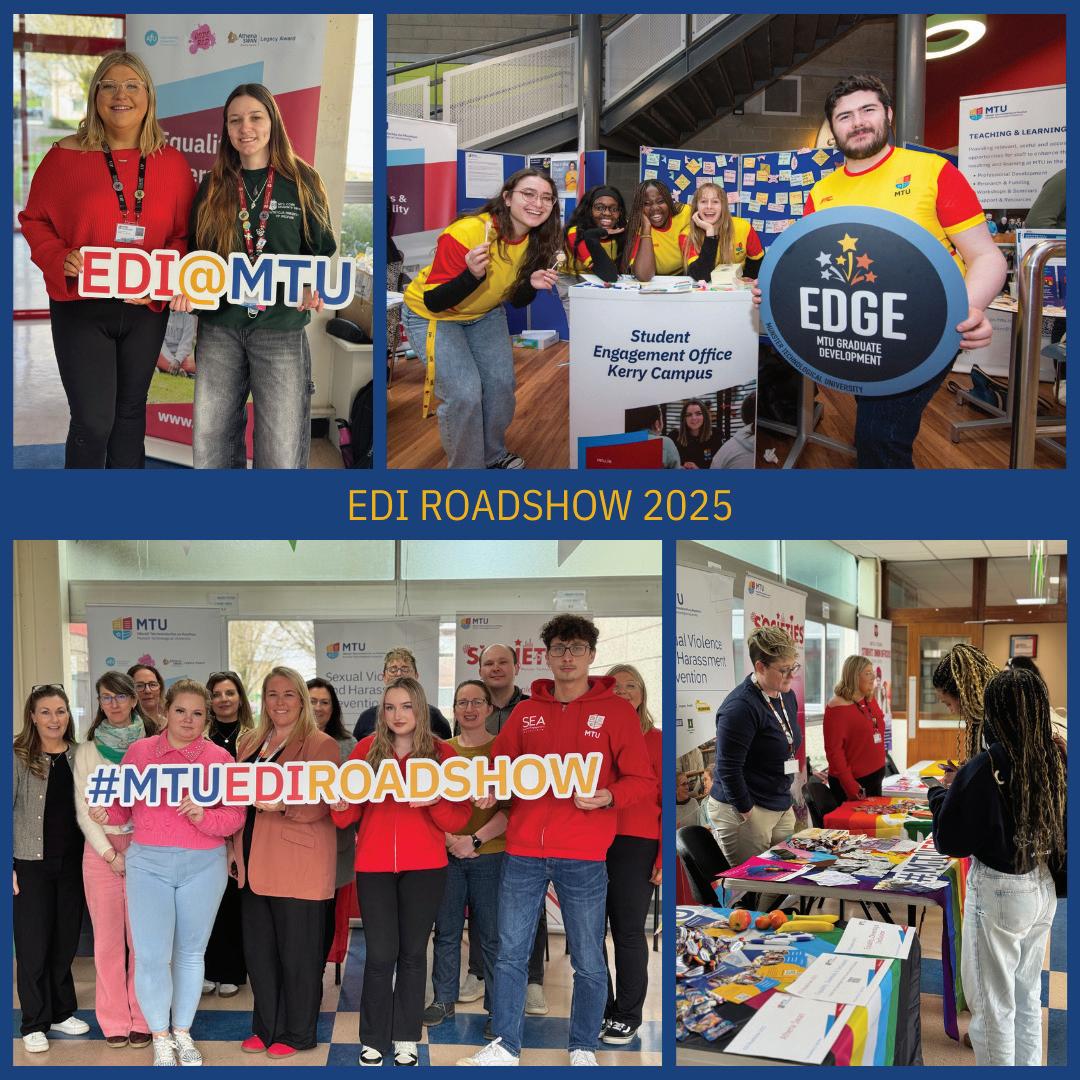
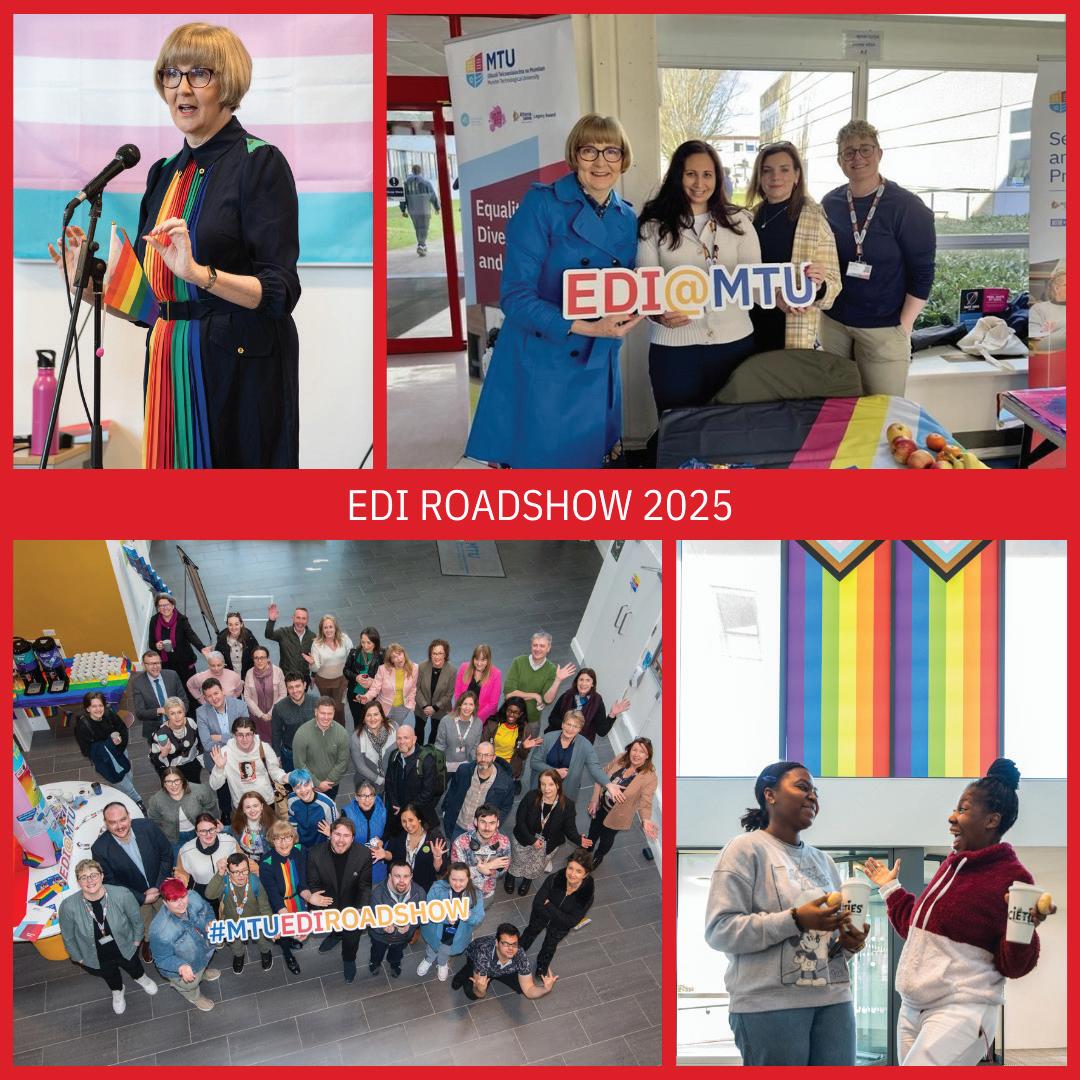
A huge thank you to all the students who joined us for this year’s EDI Roadshow, FLAG Week events, and International Women’s Day activities across MTU! Special thanks to the LGBT+ Students Society for making FLAG Week happen for the 3rd year in a row!
Your energy, curiosity, and support help make our university a more inclusive and welcoming place for everyone. Whether you stopped by for a chat, picked up some EDI resources, or showed up to support your peers, you played a part in making a difference.
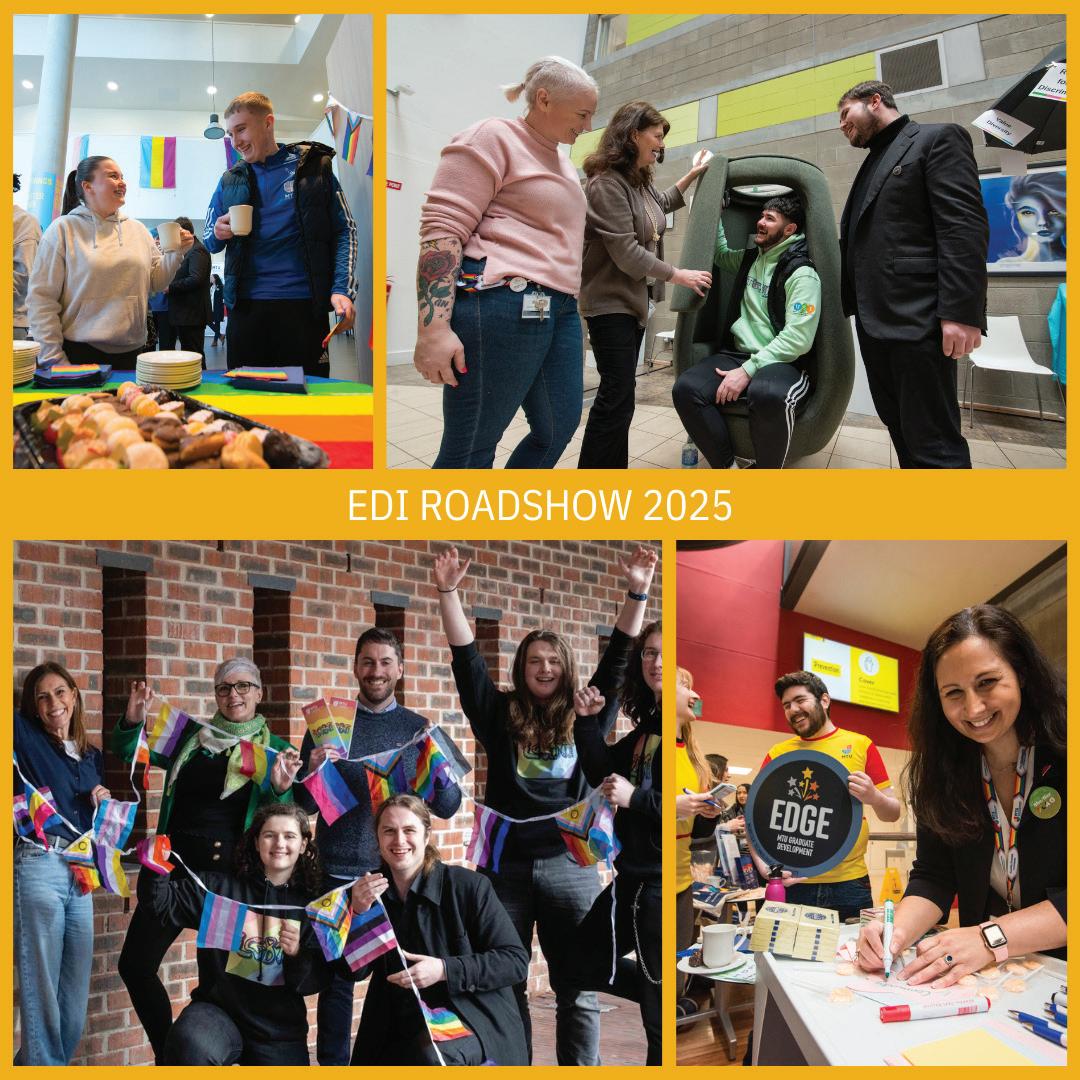
If you missed us in person, you still have a chance to have your say with our first Student Inclusion Survey launched recently –CLICK HERE to complete it now:
Now more than ever, standing up for equality, diversity, and inclusion matters. Let’s keep the conversation going and continue building a university where everyone feels valued, respected and included.
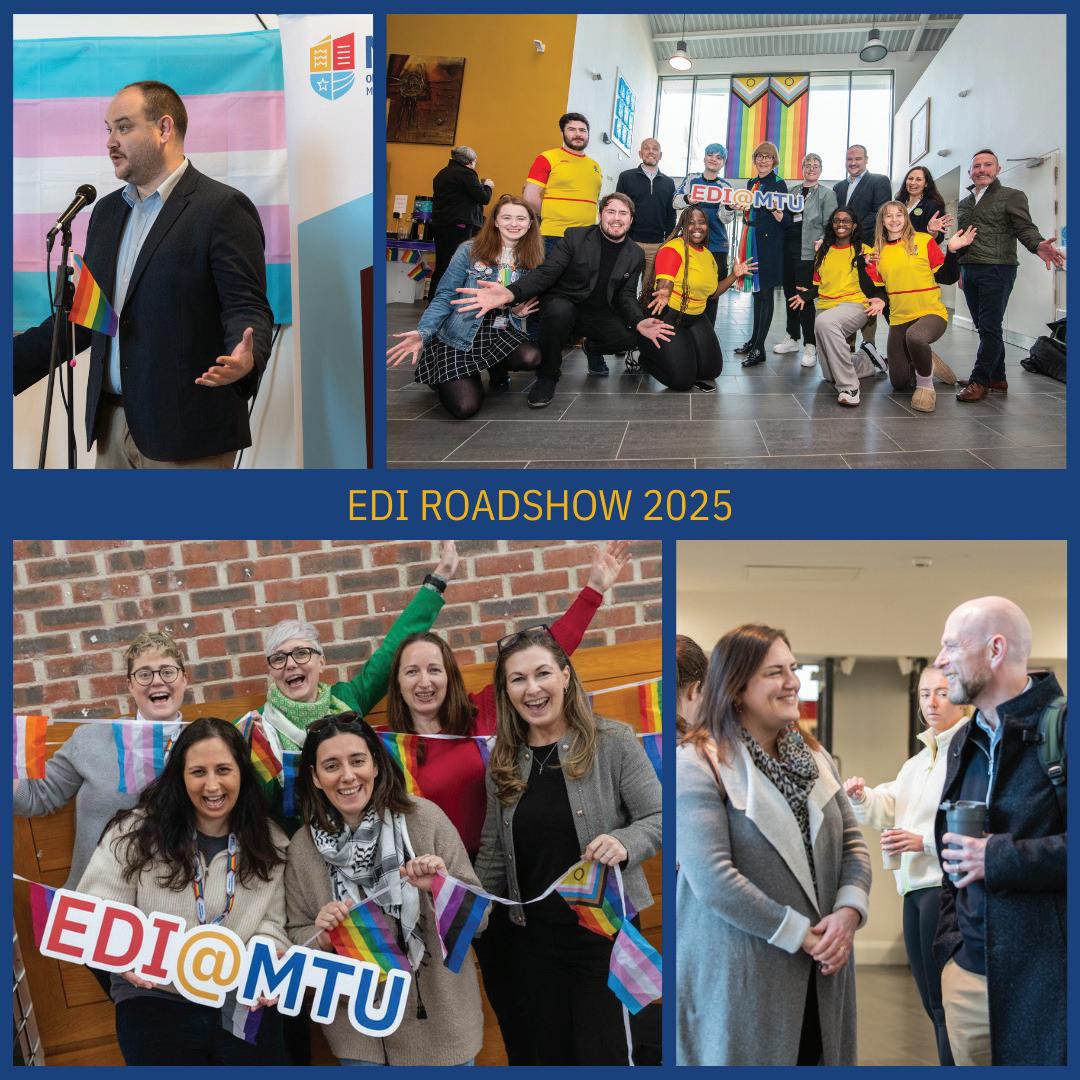

This survey is designed to understand the perceptions and experiences of inclusion by students at MTU in order to identify potential areas for improvement or enhancement. Click here to complete the EDI Student Inclusion Survey 2025.
The study aims to understand whether students feel included at MTU and what services or staff help them to feel included. It is an opportunity for students to highlight any barriers to inclusion or ways we can improve their experience of inclusion at MTU.
You have been invited to participate because you are a student at MTU. However, please note that participation is only open to students over the age of 18. By participating, you will help the university understand what helps you and your fellow students to feel included at MTU. Your input is vital in creating a more inclusive environment for all students.
You can complete the survey online by clicking here
Brought to you by MTU Medical Centre. Click here for all their details
Sk i n c an c er i s t h e most common t ype of c a nc e r i n Irel an d
Ove r 13,000 c a se s a re dia gnose d e a c h
ye a r, t h i s n u m b er i s p ro j ec t ed t o o v er d o u b l e b y 2045.
M ost pe ople living in I re la nd ha ve fair skin, t he t ype w hic h burns e a sily a nd t a ns poorly, so a re a t high risk of U V da m a ge a nd sk in c a nc e r.
Skin cancer is the most common form of cancer in Ireland, particularly among 15–44-year-olds. The good news? It’s largely preventable. With 90% of skin cancers caused by ultraviolet (UV) rays from the sun or sunbeds, taking simple protective measures can make all the difference.
Understanding UV Risks
Prot e c t your sk in
Ultraviolet rays penetrate the skin in two ways: UVB affects the top layer, while UVA reaches deeper. Both contribute to skin cancer and premature aging. Even one sunburn significantly raises your risk. And remember, you don’t need hot weather to get burned—UV rays can still be harmful on cloudy days or in winter, especially at high altitudes or near reflective surfaces like snow and ice.
Ye t m ost sk in c a nc e rs c ould be pre ve nt e d.
✔ Slip on protective clothing that covers your skin.
Exposure t o U V ra dia t ion during childhood is partic ula rly ha rm ful, prot e c t ing sk in during c hildhood is e xt re m e ly im port a nt .
✔ Slop on broad-spectrum sunscreen (minimum SPF 30 for adults, SPF 50 for children). Apply 20 minutes before going outside and reapply every two hours—more often if swimming or sweating.
✔ Slap on a wide-brimmed hat to shield your face, neck, and ears.
✔ Seek shade, particularly between 11 AM and 3 PM from April to September.
✔ Slide on UV-blocking sunglasses to protect your eyes from harmful rays.
Kn the UV index: When t he UV ind ex is 3 or ab ove you need t o p rot ec t your skin. In Ireland , t he UV d ex is usually 3 or ab ove from Ap ril t o Sep t emb er, even w hen it is c loud y St ay safe b y limit ing t ime n t he sun w hen UV is st rongest , t yp ic ally b et w een t he hours of 11:00am- 3:00p m
ow in i
Using sunbeds, especially before age 35, increases your risk of melanoma by nearly 60%. They are not a safe alternative to natural sun exposure.
Slip on clothing: Cover skin as muc h as p ossib le, w ear long sleeves, c ollared t - shirt s, c lot hes mad e from c lose- w oven mat erial t hat d oes not allow sunlight t hrough.
The SunSmart Code
Stay ahead of the risks by checking the daily UV Index via Met Éireann (UV Index). If it’s 3 or above, follow these essential SunSmart steps:
If current trends continue, skin cancer cases are expected to double by 2040. But by adopting SunSmart habits today, we can work to change this statistic.
Slop on broad- spectrum (UVA/ UVB) sunscreen Ap p ly sunsc reen w it h a sun p rot ec t ion fac t or (SPF) of at least 30+ for ad ult s and 50+ for c hild ren, w it h high UVA p rot ec t ion, and w at er resist ant Reap p ly regularly. No sunsc reen c an p rovid e 100% p rot ec t ion, it should b e used alongsid e ot her p rot ec t ive measures suc h as c lot hing and shad e.
Take care of your skin—it’s the only one you’ve got!
Slap on a w ide brimmed hat: Prot ec t your fac e, ears and nec k.
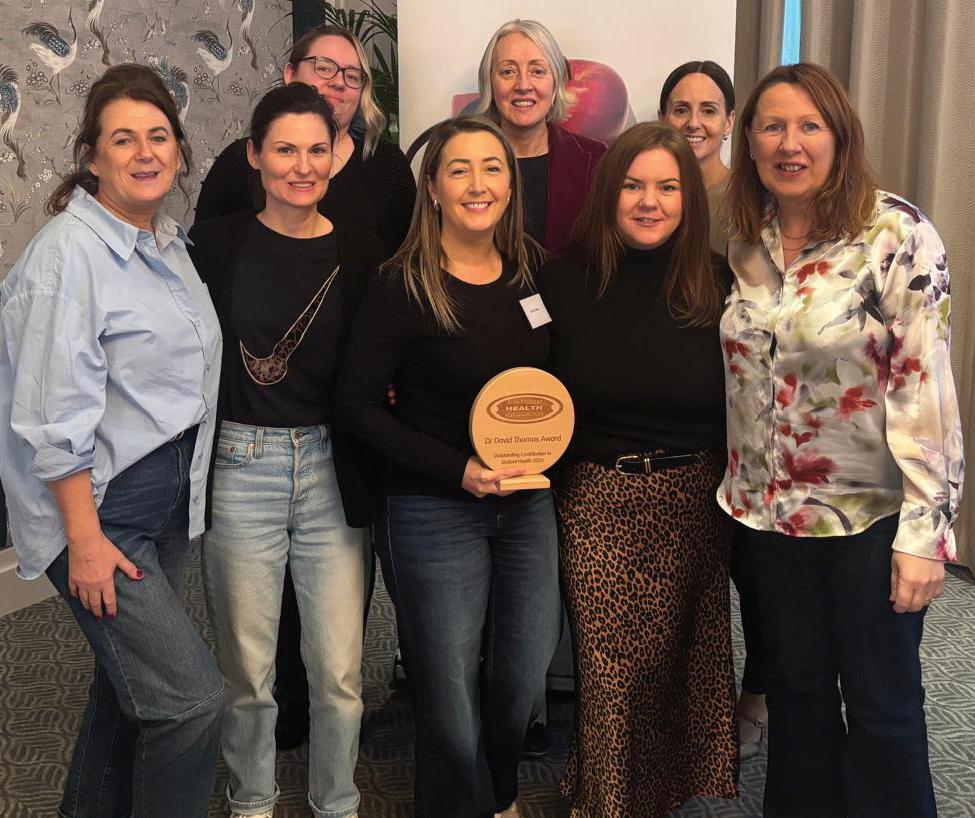
t o avoid d irec t sunlight . Use a sunshad e on your b uggy or p ram. d irec t sunlig ht
At the recent Irish Student Health Association Annual Conference, the prestigious Dr. David Thomas Award 2025 for outstanding contribution to third-level student health was presented to Nurse Sarah Hickey.
your eyes from harm b y w earing sunglasses w it h UV p rot ec t ion.
This well-deserved recognition celebrates Sarah’s dedication and hard work, particularly in achieving her qualification as a Registered Advanced Nurse Practitioner (RANP). In doing so, she has made history as the first RANP in third-level student health and the first RANP to specialise in Student Sexual Health.
to get a suntan. Avoid getting a sunburn. Never use a sunbed.
With only 24 Registered Advanced Nurse Practitioners working in Primary Care across Ireland, Sarah’s achievement reflects the calibre of this award and the impact of her trailblazing work in Student Sexual Health.
A huge congratulations to Sarah on this incredible milestone! Her success is a testament to her passion, commitment, and the support of the entire medical centre team.
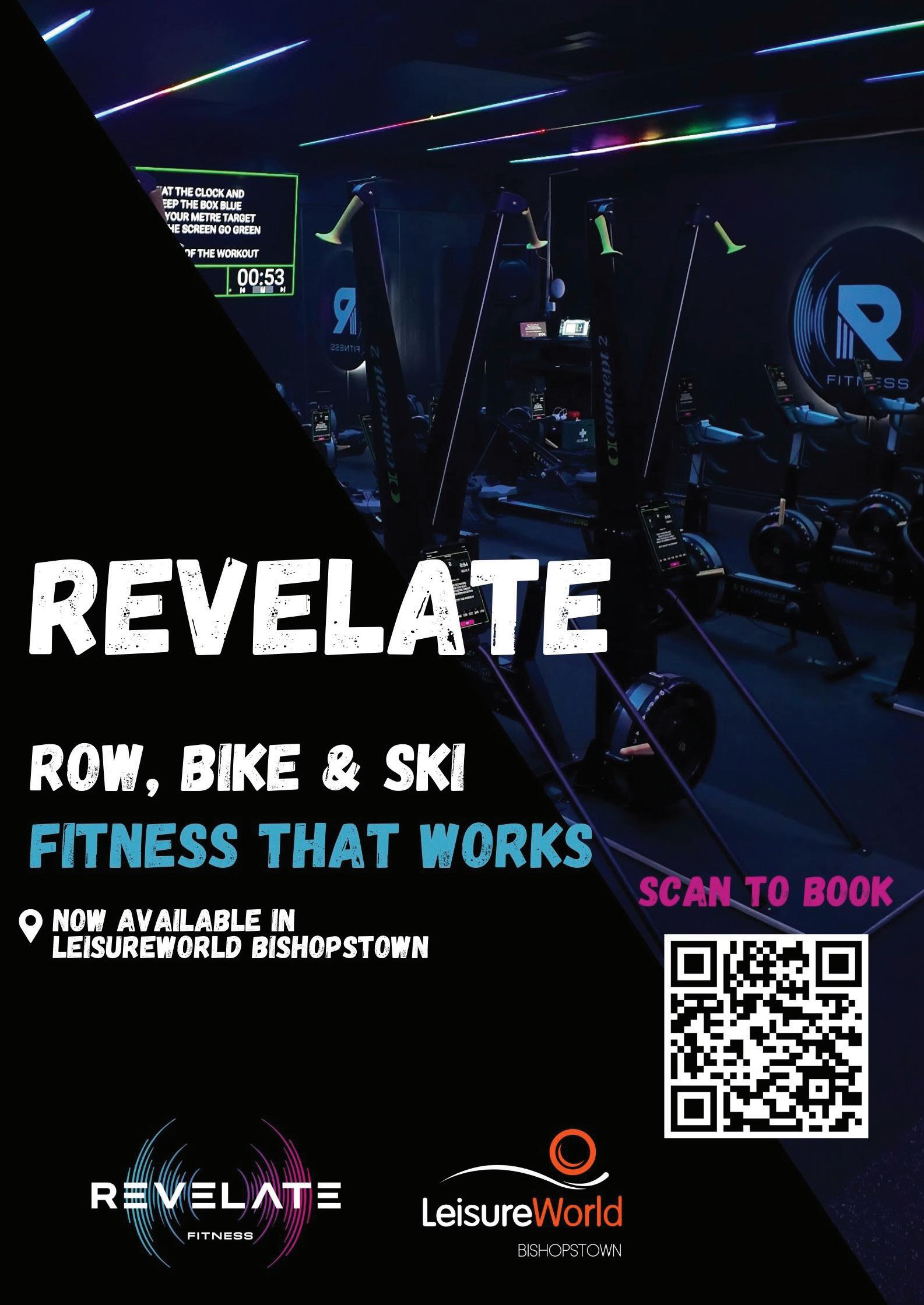
By James Flynn
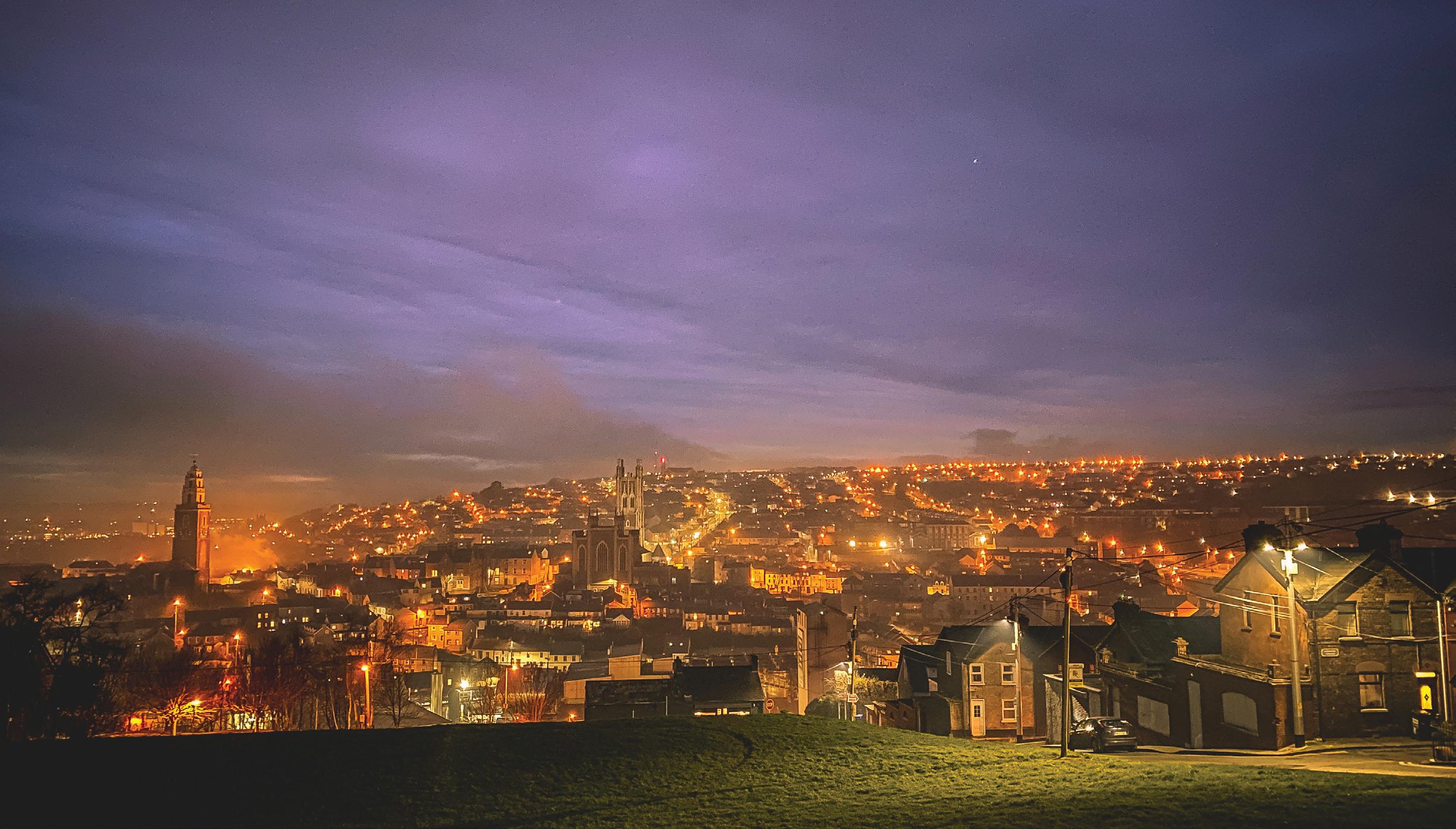
Late January found me in Café Mexicana on Carey’s Lane, savoring their signature Aztec Ice Cream—an indulgence unmatched by any other Mexican restaurant in Ireland. It was a moment of celebration, not just for the treat but for snagging the last two pairs of Levi’s 501s in my size from Denim Store, a Cork institution that had been my go-to since the mid-90s. However, it was bittersweet. The shop was closing down, marking the end of an era.
Café Mexicana still stands, but how many beloved Cork staples have vanished before our eyes?
Who could have predicted that Jackie Lennox’s Fish & Chips, a
thriving, legendary takeaway, would close with just a week’s notice last October? One former MTU Cork SU president described the loss as “worse than Cork’s defeat in the AllIreland Hurling Final.” The response was immense — queues stretched through the rain, with some fans travelling from as far as the Danish island of Bornholm for their final Jackie Deluxe. From late-night study breaks to post-match celebrations at Turner’s Cross, Jackie Lennox’s is irreplaceable.
These memories take me back to the mid-to-late 90s when my teenage self first stepped into Denim Store for those iconic Levi’s. Smartphones didn’t exist,
the internet was a novelty, but our choices seemed endless. The Huguenot Quarter was packed with combat shops, Oliver Plunkett Street thrived with funky fashion, and Patrick’s Street had both HMV and Golden Discs. You could still cling to cassette tapes over CDs. Sports shops were so community-driven they stocked Adidas and Umbro gear that big chains couldn’t match. And if you wanted a Nirvana T-shirt, your only options were Merchants Quay or Queen’s Old Castle—long before they became fastfashion staples at Penney’s.
And the nightlife? Though I didn’t fully dive into the college scene
until the 2010s, my friends at RTC (now MTU) and UCC filled me in. Sir Henry’s was the beating heart of Cork’s nightlife, where house music lifted spirits and energy soared. Gorkby’s pulled massive crowds, and spots like Nancy Spain’s and Bondi Beach had their own distinct sounds. At Victoria Cross, where student apartments now stand, The Crow’s Nest was once a buzzing hub for UCC and RTC students, fueling both rivalry and camaraderie. Jury’s Hotel on Western Road, now apartments, hosted countless college balls — perfectly positioned within walking distance of every chipper in town. Grand Parade had Capitol Cinema for those who preferred a film over a night out.
Of course, nostalgia doesn’t mean ignoring progress. Yes, we’ve lost icons like Jackie Lennox’s, and it’s harder to find a good pair of Levi’s from a local trader. But Cork has grown. Turner’s Cross is now
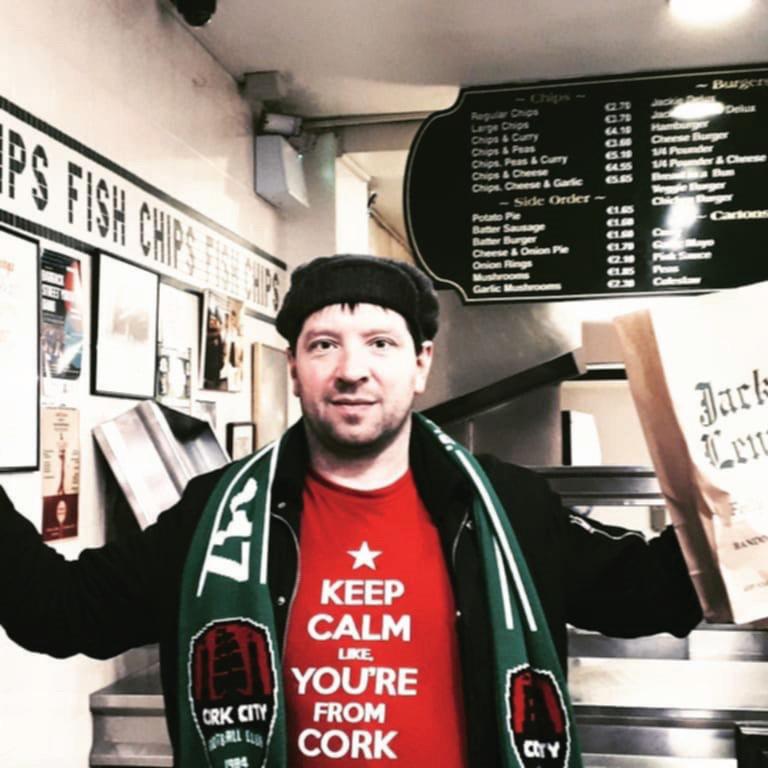
a stadium of respectable standard, and SuperValu Páirc Uí Chaoimh is exactly what Cork GAA needed. Infrastructure has vastly improved with the South Link, Jack Lynch Tunnel, and Dunkettle Interchange. Traffic will never be perfect, but it’s miles ahead of what it used to be.
Our food and drink scene is more diverse than ever, and while Golden Discs is the last established music store standing, it has reinvented itself with the vinyl resurgence, inspiring smaller record shops to follow suit. Many old businesses
Two weeks before International Women’s Day, one musician caught my attention on The Late Late Show: Nicole Lonergan, the electrifying violinist from Dungarvan. Whether performing at weddings, corporate events, or with the all-female traditional Irish band Biird, her talent is undeniable. She’s graced stages with Riverdance and Dec Pierce’s Block Rockin’ Beats Live, but it’s her high-energy Saturday night performances at Seventy-Seven on Grand Parade—often playing from atop the bar—that truly stand out.
Beyond her own brilliance, Nicole has inspired a new generation of young violinists, proving herself to be a true role model. Keep an eye out for her—she’s setting the music world on fire!
Instagram: @nicolelonergan
still thrive, and new ones bring fresh energy to the city.
The lesson? Cherish what we have while we have it, but also recognise how far we’ve come. Now in my mid-40s, I’m enjoying life with the same youthful energy I had in my teens— only with far more experience. And it seems others share this mindset. Electric Bar and Grill, once shuttered, has reopened under new management, and I look forward to trying their new menu. At a recent Winter Market, I picked up a ‘RIP Jackie Lennox’ T-shirt from Stan Notte Creations, a fitting tribute as bids pour in to revive the legendary chipper’s recipes. Even across the Atlantic, Cork’s legacy lives on—New York now boasts a late-night cocktail bar inspired by our very own Sir Henry’s.
We have the power to bring back what we love, to create anew, and to keep the spirit of Cork alive. Doubta Cork Boi!

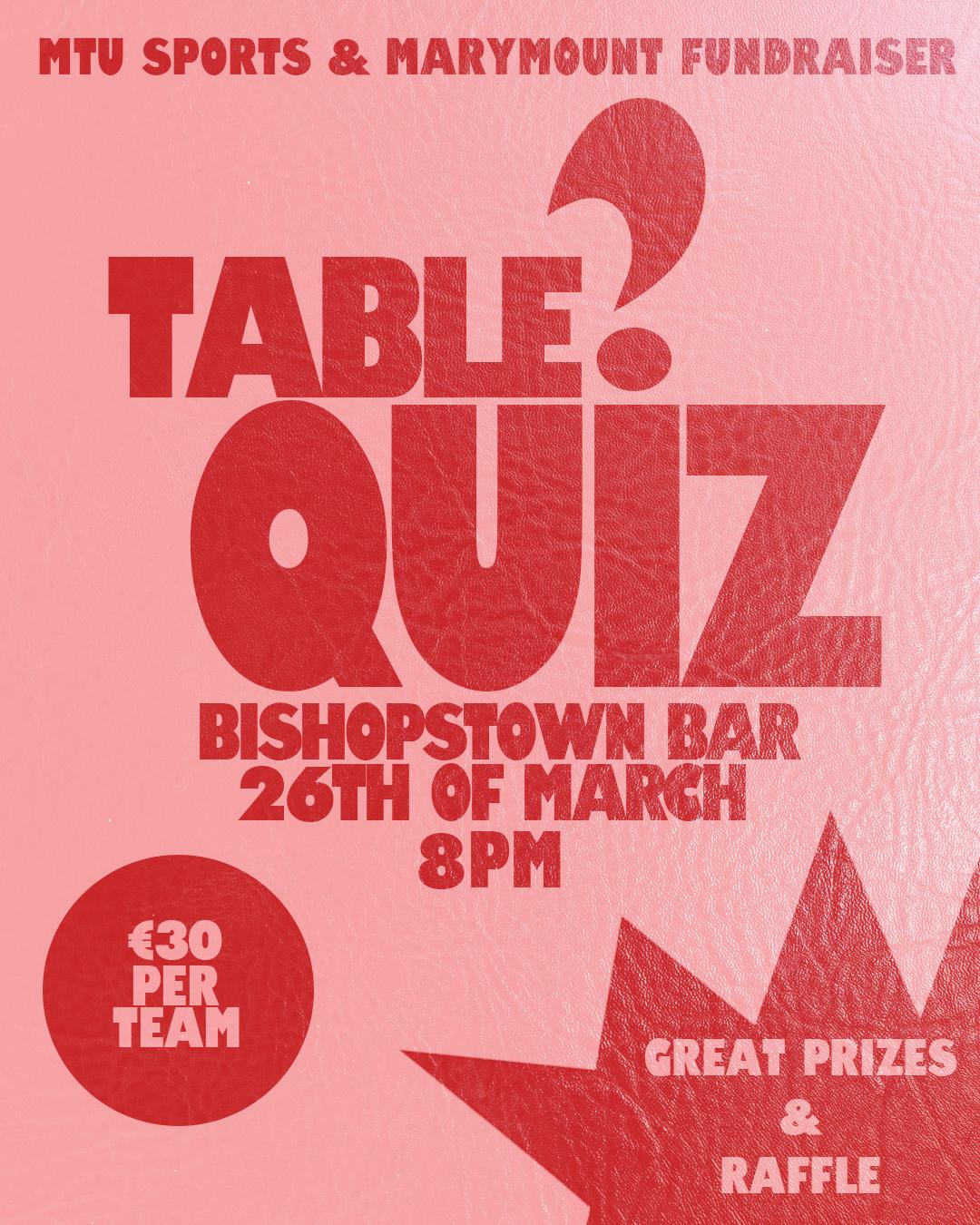









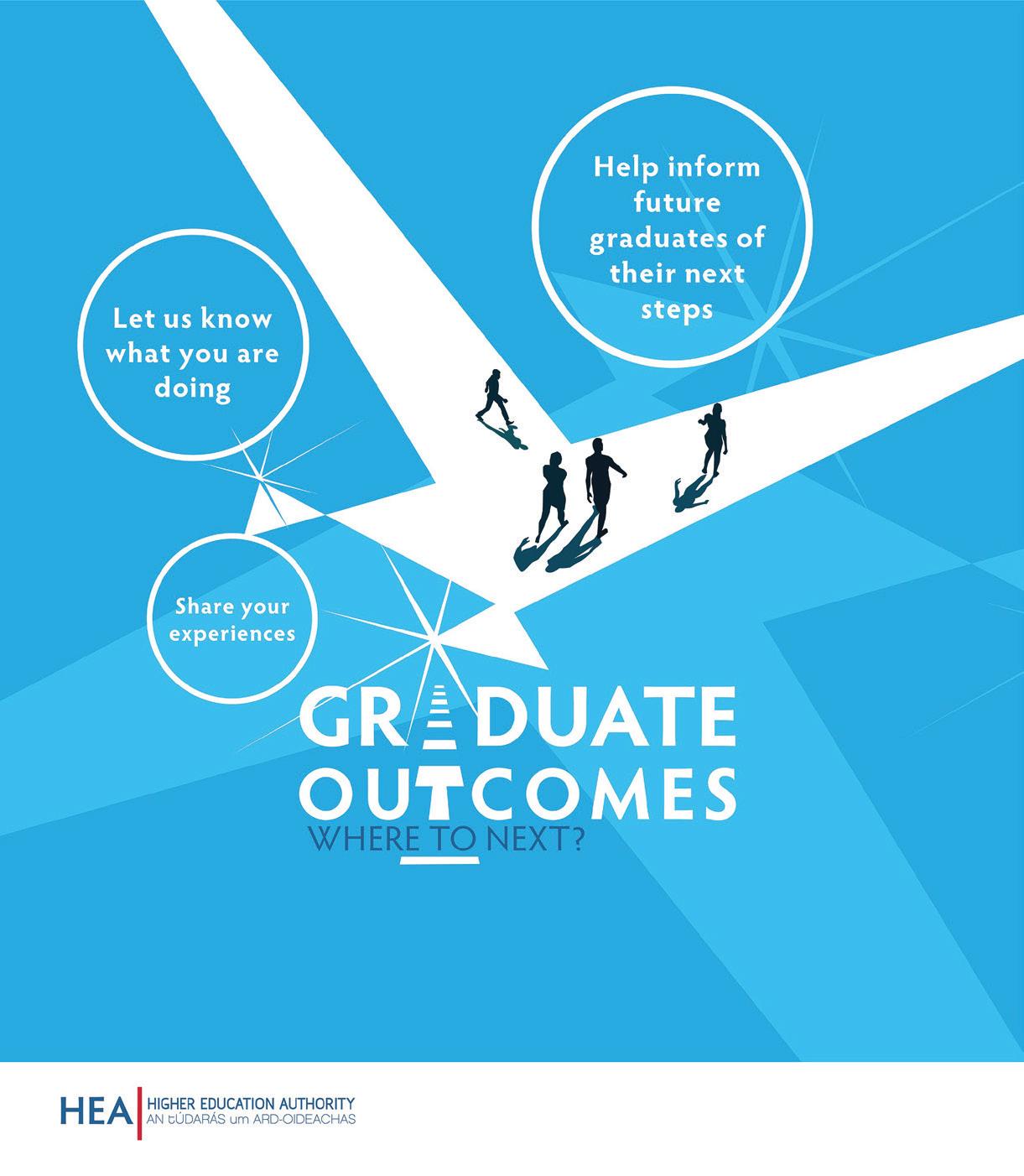
The annual Graduate Outcome Survey opens on March 31st for recent graduates. This survey, which is directed by the Higher Education Authority (HEA) is a survey of recent graduates from every university in the country. The purpose of this survey is to canvas recent graduates and learn more about their student experience at MTU; and to identify the types of roles they secured post graduation. It is a short survey and really easy to do. If you have graduated from a Level 7 degree and are now studying a Level 8, or moved straight into a postgraduate degree you will be sent a link to fill in the survey.
We look forward to hearing your responses!

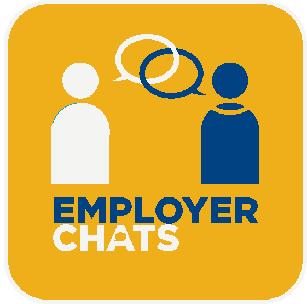

18th Mar
20th Mar 25th Mar 27th Mar 1st Apr
3rd Apr
8th Apr
10th Apr

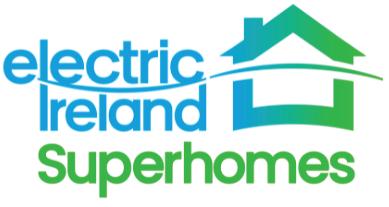













Meet these employers on the Main Hallway of the Bishopstown Campus on Tuesdays and Thursdays until the 10th of April!
Reference ID: GX32
Closing Date: 01 June 2025

